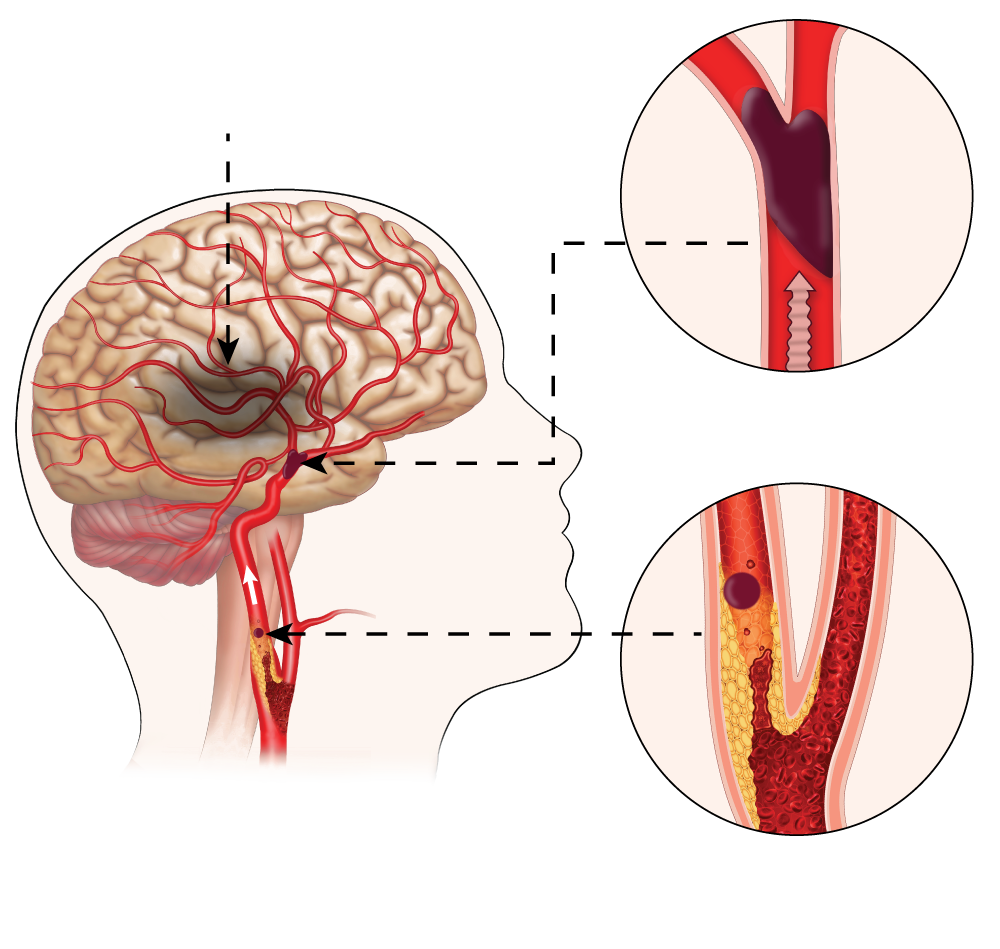
 There is no way to know in the beginning whether symptoms are from a TIA or from a major type of stroke. Call 9-1-1 right away if you feel signs of a stroke or see symptoms in someone around you. Strokes and TIAs require emergency care. A TIA is a medical emergency, just like a major stroke. A TIA is a warning sign of a future stroke. TIAs are sometimes known as “warning strokes.” It is important to know that Transient ischemic attack (TIA or “mini-stroke”)įor Blanche Teal-Cruise, a smoker for 40 years who also had high blood pressure, the transient ischemic attack (sometimes called a mini-stroke) she had on the way to work was a wake-up call. High blood pressure and aneurysms-balloon-like bulges in an artery that can stretch and burst-are examples of conditions that can cause a hemorrhagic stroke. The leaked blood puts too much pressure on brain cells, which damages them. Hemorrhagic strokeĪ hemorrhagic stroke happens when an artery in the brain leaks blood or ruptures (breaks open). 2 An ischemic stroke occurs when blood clots or other particles block the blood vessels to the brain.įatty deposits called plaque can also cause blockages by building up in the blood vessels. What are the types of stroke?Ī transient ischemic attack (TIA) is sometimes called a “mini-stroke.” It is different from the major types of stroke, because blood flow to the brain is blocked for only a short time-usually no more than 5 minutes. Call 9-1-1 right away if you or someone you are with shows any signs of a stroke.
There is no way to know in the beginning whether symptoms are from a TIA or from a major type of stroke. Call 9-1-1 right away if you feel signs of a stroke or see symptoms in someone around you. Strokes and TIAs require emergency care. A TIA is a medical emergency, just like a major stroke. A TIA is a warning sign of a future stroke. TIAs are sometimes known as “warning strokes.” It is important to know that Transient ischemic attack (TIA or “mini-stroke”)įor Blanche Teal-Cruise, a smoker for 40 years who also had high blood pressure, the transient ischemic attack (sometimes called a mini-stroke) she had on the way to work was a wake-up call. High blood pressure and aneurysms-balloon-like bulges in an artery that can stretch and burst-are examples of conditions that can cause a hemorrhagic stroke. The leaked blood puts too much pressure on brain cells, which damages them. Hemorrhagic strokeĪ hemorrhagic stroke happens when an artery in the brain leaks blood or ruptures (breaks open). 2 An ischemic stroke occurs when blood clots or other particles block the blood vessels to the brain.įatty deposits called plaque can also cause blockages by building up in the blood vessels. What are the types of stroke?Ī transient ischemic attack (TIA) is sometimes called a “mini-stroke.” It is different from the major types of stroke, because blood flow to the brain is blocked for only a short time-usually no more than 5 minutes. Call 9-1-1 right away if you or someone you are with shows any signs of a stroke. 
Quick treatment is critical for strokeĪ stroke is a serious medical condition that requires emergency care.

Learn more about the signs and symptoms of stroke. If something happens to block the flow of blood, brain cells start to die within minutes, because they can’t get oxygen. Your arteries deliver oxygen-rich blood to all parts of your brain. To work properly, your brain needs oxygen. The brain also controls many functions of the body, like breathing and digestion. The brain controls our movements, stores our memories, and is the source of our thoughts, emotions, and language. What happens in the brain during a stroke? Learn about the health conditions and lifestyle habits that can increase your risk for stroke.

A stroke can cause lasting brain damage, long-term disability, or even death. In either case, parts of the brain become damaged or die. A stroke, sometimes called a brain attack, occurs when something blocks blood supply to part of the brain or when a blood vessel in the brain bursts.








 0 kommentar(er)
0 kommentar(er)
